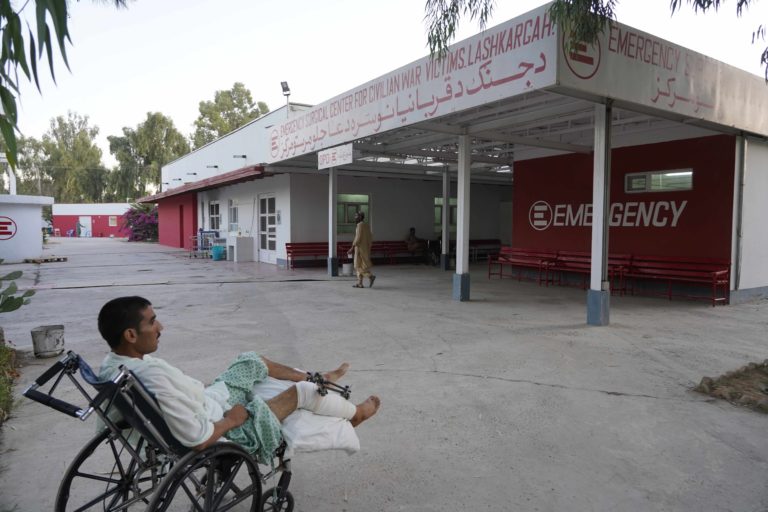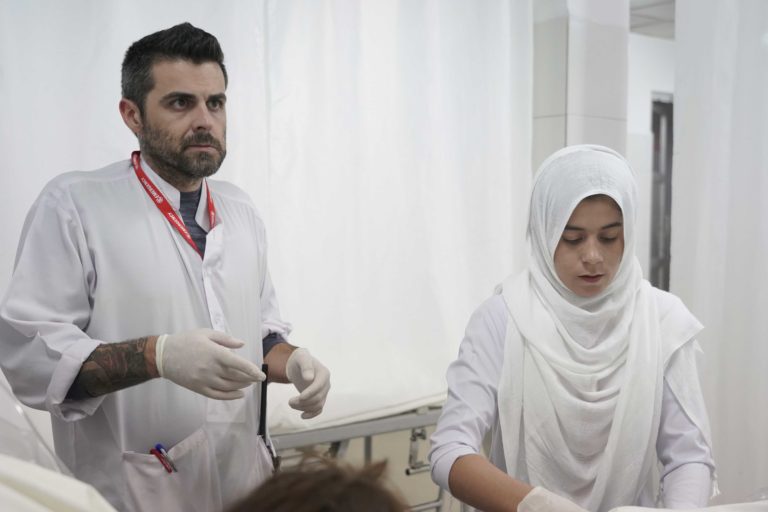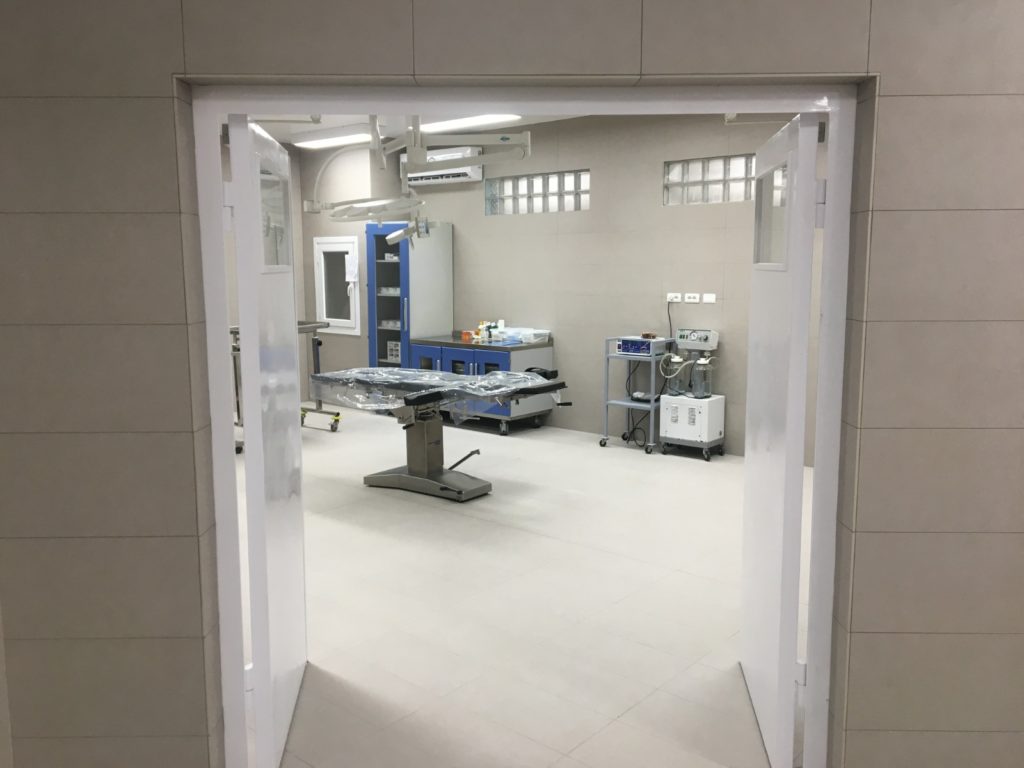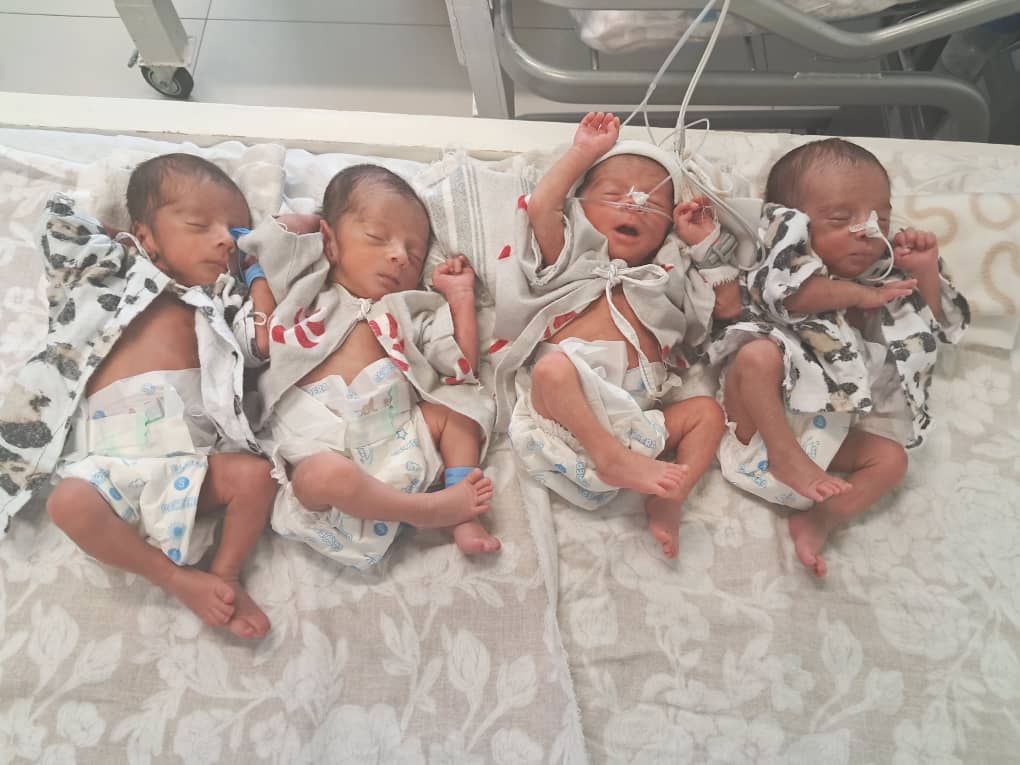Mahsa, Mehruma, Mehran, Mahnaz These four babies are siblings - quadruplets who were recently born…

Afghanistan: Reports from Lashkar-gah
Over 2,300. This is the number of patients received this year in our Surgical Centre for War Victims, LASHKAR-GAH, in Afghanistan.
Thousands of the wounded have passed through our hospital’s doors, victims of the daily violence of a war that spares noone. Outside of our hospitals, which are connected to a network of First Aid Posts in the surrounding provinces, peace is still a long way off.

“I come from a world of emergencies, I’ve worked in A&E. I was used to ambulances, to serious emergency calls…”
Alberto, Medical Coordinator of our hospital in Lashkar-gah, used to work for the emergency services in Turin, before joining EMERGENCY.
“Kids involved in accidents, domestic violence against women, heart attacks and rivers of blood…I was used to that. Then I had my first mission with EMERGENCY in Sierra Leone, during the Ebola epidemic; and after that, Iraq, in the the camps for refugees and displaced persons around Sulaimaniya. I first arrived as a nurse in Lashkar-gah in 2018.

It was there that I had to reckon with people and things with a different visual impact…something that I had not truly become accustomed to in all of my ‘professional life’. One thing in particular: the faces.
Some of the patients that we receive in the hospital arrive literally without a face. Explosions, bullets, and bombs destroy their facial features. We try to reconstruct them, as far as possible. Recently, a farmer was clearing leaves from his field and a landmine exploded in his face, destroying it completely.
If our facial features are what distinguishes us as individuals, when you lose them, how do you manage to remain yourself? We treat the wounds, but our biggest challenge is to rebuild identity.
Many of our patients come from very humble families, they are small farmers and livestock breeders. All they have is their physical strength to graze their animals or to work the land. Without an arm, a leg or a face it is impossible to continue earning money to support your children.
For those living in it, war not only sweeps away the present, but also the future. How is it possible to accept that our hospital receives 3-month-olds who have been shot at? How could someone shoot at a newborn? You feel sick, like shit.
We try to always be ready, to guarantee our patients the best treatment possible, so that at least this right – the right to treatment – won’t be destroyed. Despite the war.
The hospital’s new surgical unit
In the past few months we have built a new surgical unit, and renovated other parts of the hospital. To be prepared for managing more surgeries at once and to reduce waiting time for operations, we have restructured the two current operating theatres, and have opened up a third- entirely dedicated to orthopaedic surgery. We have equipped the hospital with a new sterilisation area, which is essential for maintaining a high level of hygiene and cleanliness throughout the hospital.

We have also installed new air conditioning systems and have fitted the roof with a bulletproof covering; a new block also houses auxiliary services, such as laundry and tailoring.
We have been in Afghanistan for twenty years. Every year seems like the worst: the attacks increase, the injuries increase, and we can’t even imagine leaving the country.
When there is a gradual dip in the number of patients, it means that the fighting has stopped, that there is a brief ceasefire. And we breathe a little sigh of relief, because less fighting means fewer deaths.
These are our reports. If the noise of war is to become more and more deafening, we are committed to making the echo of peace resonate even louder.
The activities of the Surgical Centre for War Victims, LASHKAR-GAH are financed by the European Union Civil Protection and Humanitarian Operations (ECHO).




